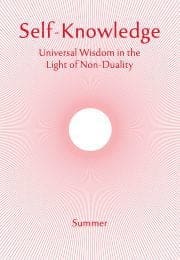Finding Safety in Your Deeper Self
One of our main needs is to feel safe. Outer safety cannot be guaranteed, but there is a marked difference between living in a threatening environment, and one in which we are left in peace. A good friend with whom we feel perfectly safe is one of life’s greatest gifts—as long as we make our own contribution to the friendship through our considerateness, patience and willingness to help.
Safety is not an end in itself. It is a condition under which we can more easily and without distraction pursue our goals. And life is not just a surface activity. There is a level of insecurity which seems to be part of our very consciousness—what some philosophers of the last century called ‘existential anxiety’. According to this view we are all naturally prone to worrying. And what we worry about is not simply the practical affairs of our day. Our hearts also contain a hidden allotment of unease, in which we breed our secret concerns about life itself—our own life—its meaning or meaninglessness. We may also feel some degree or anxiety about our moral state and whether or not we will scrape through at some final reckoning.
So we have our outer life and the personality we present to the world. On a little more inward level we have what might be called ‘me’, where our deeper, ‘existential’ worries and anxieties have their secret play. And it seems that what we think of as our self consists of our personality and this deeper, somewhat insecure, aspect of our inner life that we have called ‘me’.
Such ideas are analysed in, for example, the book The Courage to Be by Paul Tillich. And towards the end of his book Tillich writes in a way that concurs with the Yoga of Self-knowledge as regards how we may transcend all anxiety.
The mystic seeks to penetrate the ground of being, the all-present and all-pervasive power of the Brahman (the Absolute, i.e. God). In doing so he affirms his essential Self which is identical with the power of the Brahman.
Subscribe or enrol for free guest access to read all of this article and Self-Knowledge online.
Already subscribed or enrolled? Log in:


